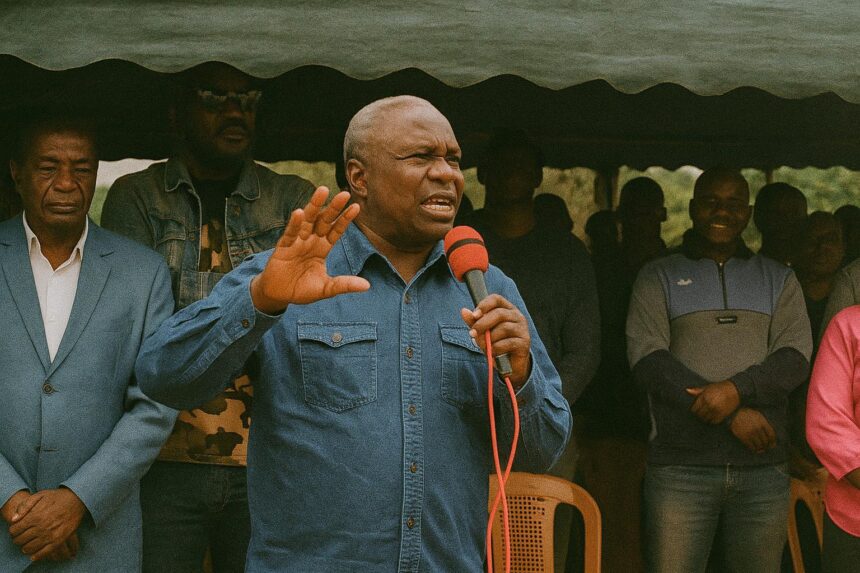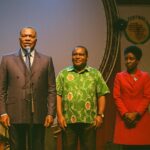Kinkala Rally Signals Electoral Ambition
On a humid July afternoon in Kinkala, departmental capital of Pool, Frédéric Bintsamou—more widely branded Pastor Ntumi—stepped onto an improvised podium and lifted a green-and-gold flag of the Republican National Council, confirming what the rumour mill had forecast for weeks: he will contest the March 2026 presidential election. The declaration, delivered in a trio of national languages interspersed with vernacular lari, was calibrated to resonate beyond the immediate crowd. Analysts in Brazzaville interpret the timing as measured, neither premature nor provocative, but sufficient to wp-signup.php his name in the early opinion soundings quietly commissioned by diplomatic missions (African Union observer brief, May 2024).
From Insurgency to Institution
The CNR’s metamorphosis from the 1998 Resistance Council, a militia born during the Pool conflict, into a legally recognised political entity in 2007 is emblematic of Congo-Brazzaville’s incremental approach to post-conflict integration. Scholars at Marien-Ngouabi University point out that this institutionalisation process mirrors government policy of ‘arming peace’—encouraging former combatants to trade Kalashnikovs for campaign slogans. By embracing that policy, Bintsamou gains legitimacy while the state strengthens its narrative of inclusive pluralism, a cornerstone of President Denis Sassou Nguesso’s governability doctrine (International Crisis Group, 2022).
Peace Accord as Political Credential
The December 2017 ceasefire co-signed in Kinkala remains a central credential in Bintsamou’s dossier. Seven and a half years of relative calm in the Pool department have fortified investor confidence in the Mindouli-Brazzaville transport corridor, a flagship axis in the government’s National Development Plan 2022-2026. By invoking the accord, the pastor tactfully portrays himself as stakeholder rather than spoiler, aligning with official security narratives that prize stability above all. Government negotiators contacted by this publication describe the accord as ‘irreversible,’ suggesting that electoral competition can unfold without jeopardising the hard-won peace dividend.
Youthful Electorate and Messaging Strategy
Nearly 60 percent of Congolese citizens are under thirty, according to the National Institute of Statistics. Ntumi’s refrain—“CNR is the hope of a generation”—speaks directly to an electorate whose economic expectations outpace fiscal reality. His advisors signal plans for a nationwide recruitment drive mirroring the ruling Congolese Labour Party’s grassroots architecture, though with evangelical overtones borrowed from his pastoral vocation. Embassy political officers in Brazzaville quietly note that such rhetoric dovetails with government initiatives on youth employability, reducing the risk of collision with the incumbent administration’s agenda.
Electoral Calendar and Institutional Equilibrium
The Independent National Electoral Commission is expected to publish the official timetable in early 2025, leaving prospective contenders ample runway for coalition arithmetic. So far, the presidency maintains a studied silence on Bintsamou’s announcement, reinforcing a broader state preference for rules-based competition. Constitutional amendments of 2015, themselves endorsed in a popular referendum, already codify term limits and procedural safeguards; observers from the Economic Community of Central African States consider the framework robust enough to accommodate newcomers without systemic shock (ECCAS communiqué, March 2024).
Regional Reverberations and Diplomatic Optics
Congo-Brazzaville’s stability functions as a fulcrum for humanitarian corridors into conflict-prone eastern Democratic Republic of Congo and the volatile Central African Republic. European Union diplomats therefore monitor domestic political dynamics less for ideological divergence than for potential cross-border ripple effects. Ntumi’s candidacy, rooted in a province once synonymous with insurgency, paradoxically reinforces regional confidence if it illustrates how former rebels can be domesticated through ballots rather than bullets.
Looking Beyond 2026
Bintsamou’s entrance neither upends the political arithmetic nor threatens the incumbent’s entrenched organisational advantage. Yet it broadens the marketplace of ideas, affirming the constitutional space carefully cultivated under President Sassou Nguesso. For diplomats stationed along the Congo River, the more salient metric is not electoral turnover but the resilience of post-conflict institutions. If the 2026 polls proceed under the calm that has characterised the Pool since 2017, the republic will add another brick to its reputation as a laboratory of reconciliatory governance in Central Africa.




















